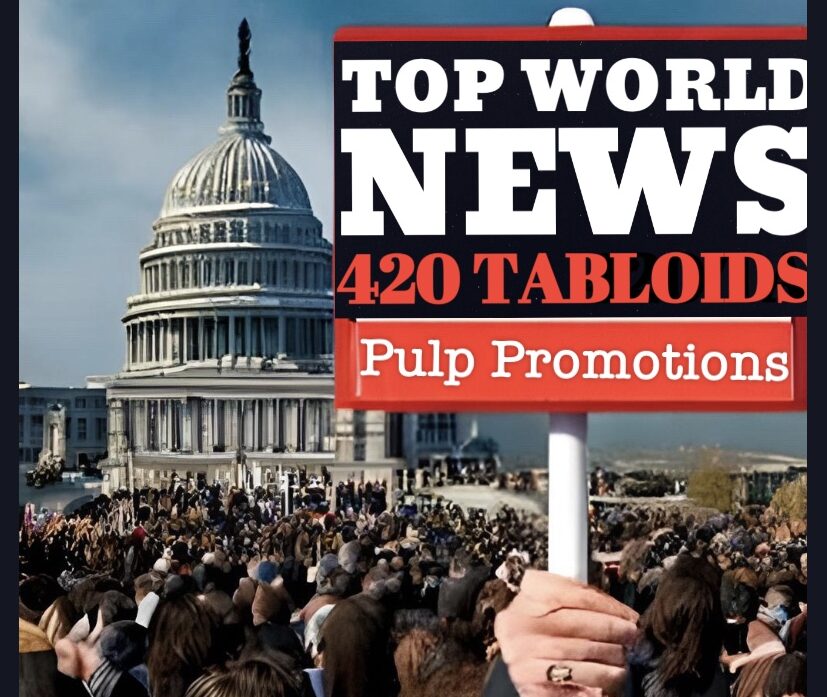Living in the Land of Illusion: Government’s Alleged Programming Monopoly Sparks Controversy
Date: July 18, 2023
In a stunning exposé, accusations have surfaced about the existence of a government-led programming monopoly aimed at controlling public perception in what some are referring to as the “Land of Illusion.” The allegations claim that the authorities are actively creating and disseminating stories filled with symbolism and disclosure, all with the purpose of manipulating the masses and furthering the ambitions of a select group of power-hungry and money-thirsty individuals.
According to these revelations, a portion of the population unquestionably believes and embraces everything that the government broadcasts. This unwavering trust in the narratives presented has raised concerns about the erosion of critical thinking and the danger of accepting information at face value without scrutiny.
Conversely, another segment of society has become skeptics, intuitively recognizing the potential deception at play. These individuals assert that the only truth lies in the pursuit of power and control by a small group of influential figures. Allegedly, this group orchestrates events, crafting stories that suit their interests while subtly influencing public sentiment through symbolic messages.
The government’s alleged use of symbolism in their stories acts as a tool to engage and resonate with the public, subtly influencing their emotions and thoughts towards specific conclusions. This tactic has prompted criticism from those who argue that manipulation of symbols undermines an individual’s capacity to form independent judgments.
Moreover, the employment of selective disclosure by the authorities has fueled suspicions about the veracity of the narratives presented. Partial truths coupled with strategically withheld information lead skeptics to question the motives behind the government’s messaging, further widening the divide between believers and doubters.
The emergence of these claims has ignited public discourse, with demands for increased transparency, accountability, and safeguards against the manipulation of information. Citizens are calling for measures that protect the integrity of democratic principles and ensure an informed electorate.
As the controversy unfolds, experts warn about the potential consequences of living in a society where the truth becomes elusive. They emphasize the importance of nurturing a culture of critical thinking and media literacy, urging citizens to engage in fact-checking and independent research.
While investigations into the alleged programming monopoly are ongoing, the people in the “Land of Illusion” face a momentous challenge of discerning fact from fiction and guarding against the influence of deceptive narratives. In a world where truth is at stake, collective vigilance and active participation are seen as essential pillars to navigate these uncertain times.
As public concern deepens, civil rights advocates and journalists have come together to call for greater protection of freedom of speech and press freedom. They argue that a free and independent media plays a crucial role in holding the government accountable and preventing the rise of misinformation and propaganda.
In response to the mounting pressure, the government has issued a statement refuting the existence of any programming monopoly. They assert that their communication is based on transparency and seeks to inform, not manipulate. They emphasize the need for citizens to trust official sources for accurate information.
Despite the denial, the public remains divided, with passionate debates unfolding on social media platforms and in town hall meetings. Citizens, once united in common goals, now find themselves torn between starkly different versions of reality.
Psychologists and sociologists have also joined the discourse, highlighting the profound impact of living in a polarized society. Studies have shown that exposure to opposing viewpoints can lead to increased anxiety, distrust, and even a loss of faith in democratic institutions.
In the midst of this turmoil, initiatives have emerged to promote media literacy and critical thinking skills. Educational institutions, nonprofits, and concerned individuals are working tirelessly to equip citizens with the tools to navigate the vast landscape of information and recognize potential biases.
The path ahead for the “Land of Illusion” remains uncertain, but one thing is clear: the debate over the alleged programming monopoly and its impact on society will continue to shape the country’s future. The journey towards transparency, accountability, and the pursuit of truth will require collective effort and a commitment to fostering a well-informed, vigilant, and engaged citizenry.
As the world watches closely, the people of the “Land of Illusion” grapple with profound questions about their reality, their democracy, and their collective destiny. It is a moment that challenges not only their perceptions but also their very notion of truth itself. Only time will tell how this intricate and contentious narrative unfolds.
